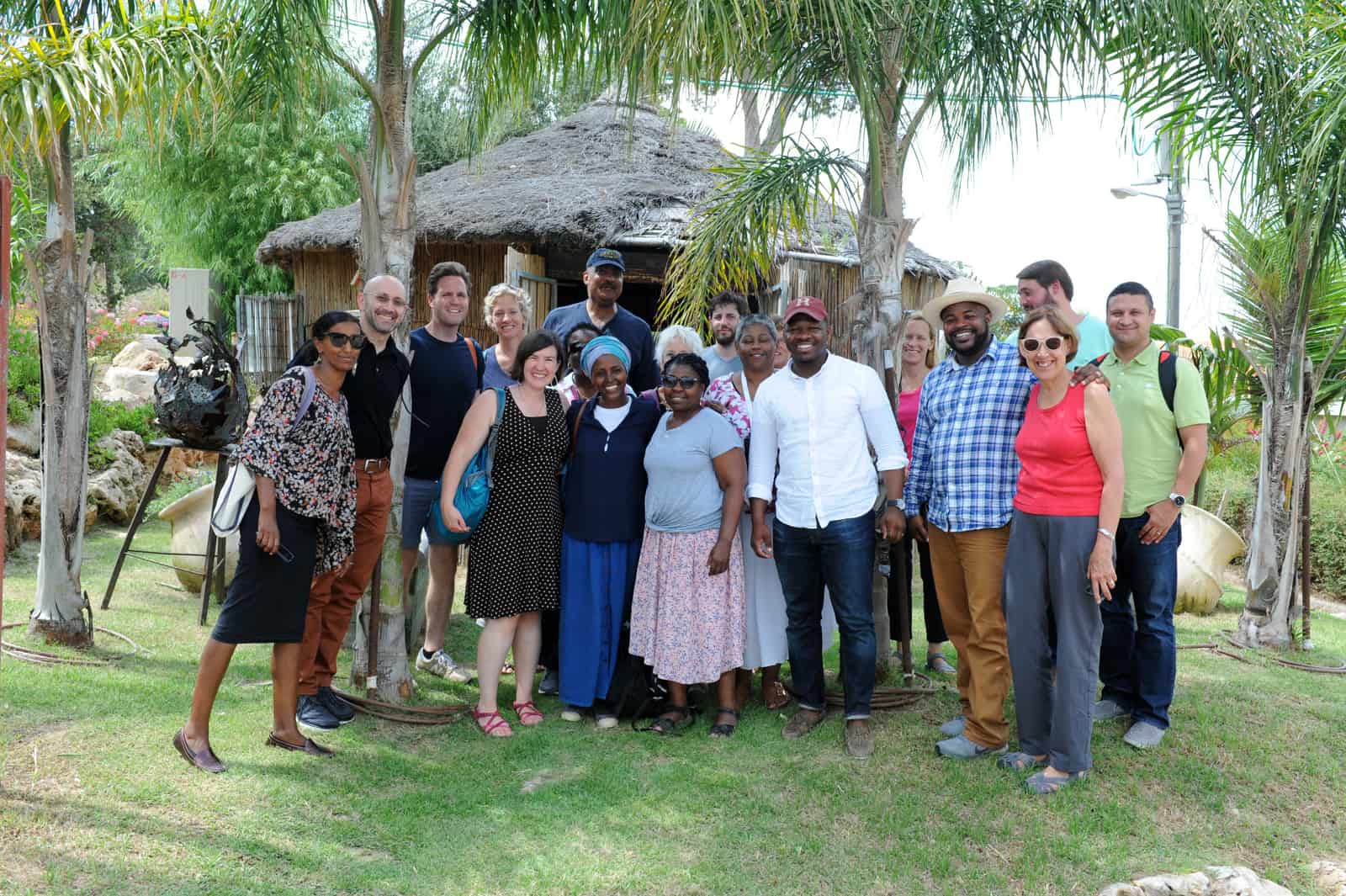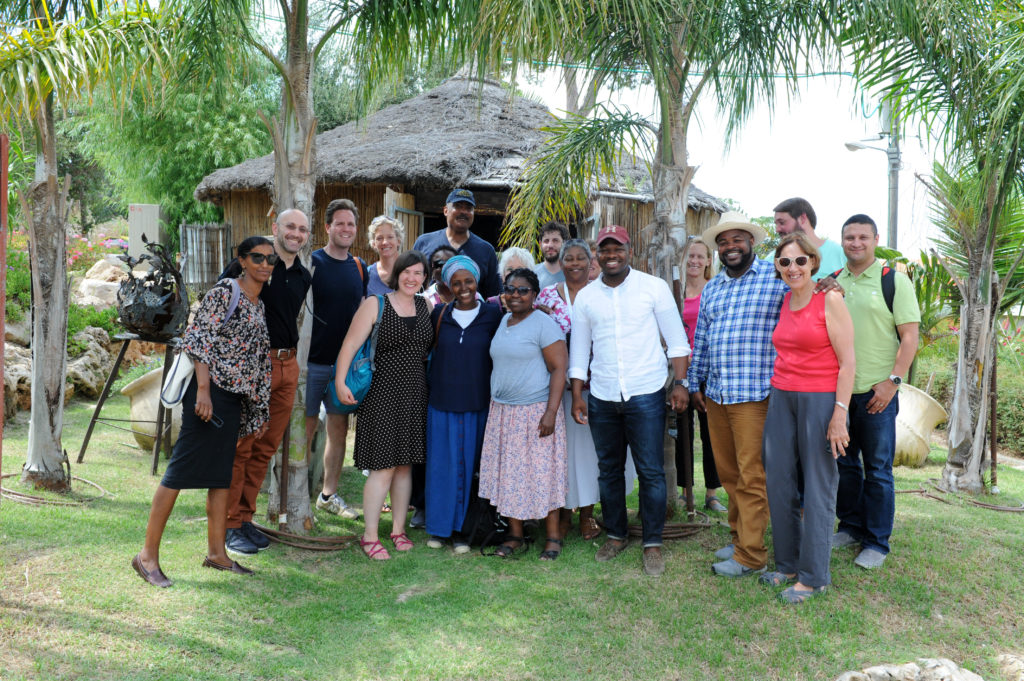This week’s Friday message is from Eli Cohn-Postell,
JCRC Director of Israel Engagement
There is a rabbinic idea that there are 70 faces of the Torah, each containing its own bit of truth about the world. This Talmudic theory was explained to me at the Shalom Hartman Institute in Jerusalem earlier this week, one of the stops on JCRC’s recent Christian clergy study tour to Israel. Our group was composed of 13 local clergy members and two trip co-chairs: Revered Kathleen Reed of University Lutheran Church and Rabbi David Lerner from Temple Emunah. Throughout our week we experienced what felt like 70 different faces of Israel, each with its own piece of truth that we were left to puzzle together into a coherent whole.
I am returning from the trip with a renewed sense of conviction regarding JCRC’s Israel engagement work. Our conversations in Israel were marked by two prevailing themes—ideas that mirror our priorities for how we engage with Israel here in Boston. First, we experienced the complexity of Israel, always moving ourselves from black and white answers into the muddled, gray, middle area. We also heard repeatedly from both Israelis and Palestinians about the power of investing in bottom-up, grassroots peacemaking efforts.
Israel remains a confounding place for many of us. How can so much good be mixed with so much that raises uncomfortable questions? Our group was inspired by programs that lift up the voices of those most in need. We learned about the way Sindyanna of the Galilee, a female-led non-profit that sells fair trade olive oil, is changing cultural norms by providing new economic opportunities for Arab women. We were equally moved by the work done at Yemin Orde Youth Village, a home to 440 at-risk and immigrant youth from around the world, and their philosophy of education and life that spurs growth in every individual they work with. When we arrived in Jerusalem in time for the LGBTQ Pride march, many of us joined in the celebration. We were able to visit a community on the border with Gaza and what seemed like calm on Monday had turned into rocket attacks by the time we returned home Tuesday.

We also had the opportunity to dive into programs working on reconciliation, co-existence, and recognition of the other. Our participants were excited to learn about JCRC and CJP’s Boston Partners for Peace initiative, and we had the opportunity to learn about partner organizations including Givat Haviva, Hand in Hand schools, Women Wage Peace, and the Parents Circle Families Forum. The work of the Parents Circle, which is a group of Israeli and Palestinian families who have lost loved ones to the violence, resonated with our group. This was thanks in part to the connection between their work and that done by one of our participants, Chaplain Clementina Chèry. She is the founding Director of the Louis D. Brown Peace Institute, a center of healing and learning for grieving families and communities. We look forward to co-hosting a delegation of bereaved families from the Parents Circle in Boston next month.
On the other hand, we could not avoid the problem areas embedded in Israel’s social fabric. The Palestinian speakers we met with expressed grave concerns about Israel’s new nation-state law, stating clearly their view that they are now de jure second-class citizens. We also heard from an asylum seeker from Darfur about the struggles he faces trying to balance opportunity in Israel with his fear of returning home and the challenges of navigating the Israeli bureaucracy. The topic of race came up frequently on our trip, and unfortunately two of our African American participants experienced troubling racial incidents during our tour of Jerusalem’s Old City. These incidents were all the more perplexing since it seems they were instigated by Palestinians, a group that many of our African American participants felt a strong kinship with throughout the rest of the trip.
All of this was summed up by a phrase one of our participants coined to describe Israel: profound normal. Israel is a normal country, grappling with issues of democracy, discrimination, and immigration while also making powerful contributions to global issues and being a regional leader in the areas of inclusion and human rights. At the same time, this normalcy is profound—the issues we care about in Israel are the same as those we want to see progress on in America and the rest of the world. Where we might expect there to be difference we instead find similarity.
I know that we in Boston are on the right path. We are creating a model for Diaspora engagement with Israel that isn’t afraid of the complexity, and that takes the time to listen to our partners so that we can help create a peaceful future for Israelis and Palestinians. We create initiatives like Boston Partners for Peace not because we want to dictate the best path for Israelis and Palestinians, but because our ears are open to their needs. And every few months our study tour programs for clergy and civic leaders introduce new changemakers to these partners and help to spread their message: the hope that peace can happen.
Shabbat Shalom,
Eli




